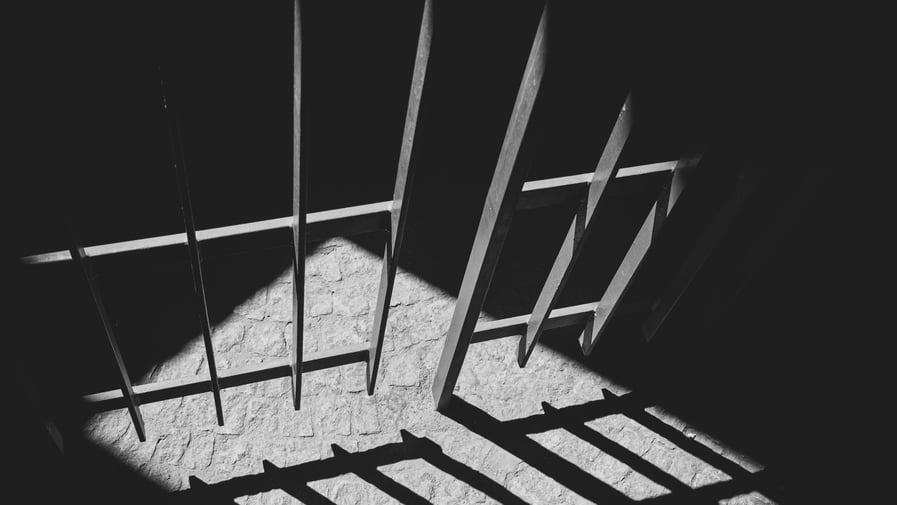This month’s Red Flag Bulletin includes the following stories:
- Chinese-Canadian billionaire Xiao Jianhua sentenced to 13 years in prison on embezzlement and bribery charges;
- Argentinian prosecutor asks for 12-year prison sentence for vice-president Cristina Fernández de Kirchner in corruption trial; and
- US sanctions three Liberian officials for alleged corruption.
MIDDLE EAST AND NORTH AFRICA
Iraq: State-owned bank receives USD 600 million fine
On 9 August, Rafidain Bank, the largest state-owned bank in Iraq, was fined USD 600 million following accusations that it had improperly terminated a public contract for the issuance of electronic payment cards. In March 2021, Rafidain Bank cancelled its agreement with Ishtar Gateway, an Iraqi electronic payment processor, citing that Ishtar Gateway did not meet necessary contractual requirements and stood to gain “unjustified profits” at the expense of the bank’s customers. Iraqi political figures have criticised the fine against Rafidain Bank, the proceeds of which were due to go to Ishtar Gateway, with one member of the Iraqi Parliamentary Legal Committee calling it a “frightening waste of public money”. On 11 August, Ishtar Gateway officially waived its right to compensation, prompting one Iraqi anti-corruption institution to allege that this was intended to hide large-scale Iraqi state corruption. Separately, on 22 August, Iraq’s state anti-corruption investigative body arrested ten Rafidain Bank employees, accusing them of having embezzled USD 9.45 million.
Iran: Progress made on international nuclear agreement that could lift sanctions
On 15 August, a spokesperson for the Iranian ministry of foreign affairs announced that Iran was in advanced talks to sign an international nuclear agreement. The spokesperson added that Tehran expected each of its demands – including the lifting of US and UN sanctions on the country – to be respected in negotiations. On 11 August, The Wall Street Journal reported that, intending to speed up negotiations, the European Union had proposed putting a stop to a UN investigation into Iran’s former atomic activities. This wider investigation includes an enquiry by the International Atomic Energy Agency into undeclared nuclear material found in Iran in 2019. The deal’s reported progress comes one month after the US imposed new sanctions upon a network of international petroleum trading entities accused of being fronts for sanctioned Iranian oil businesses. On 28 August, an Iranian news outlet reported that Iran was reviewing the US government’s comments on the draft agreement and that a final agreement was unlikely to be reached before 2 September.
ASIA PACIFIC
China: Chinese-Canadian billionaire sentenced to 13 years in prison on embezzlement and bribery charges
On 19 August, Chinese-Canadian billionaire Xiao Jianhua was sentenced to 13 years in prison. The Shanghai First Intermediate Court stated that Xiao and his company, Tomorrow Holdings, were convicted of crimes including illegal absorbing of public deposits, betraying the use of entrusted property, illegal use of funds, and bribery. Xiao and Tomorrow Holdings reportedly pleaded guilty and were also fined USD 950,000 and USD 8.1 billion, respectively. Xiao’s trial attracted global media attention in July 2022 after Canadian officials were barred from attending the trial by Chinese officials. Xiao was last seen in public in 2017, when he was seen being escorted out of the Four Seasons Hotel in Hong Kong, where Xiao was understood to be living at the time.
India: Former Punjab state minister arrested for corruption
On 22 August, the Punjab Vigilance Bureau, the Punjab state’s anti-corruption watchdog, arrested former state-level minister Bharat Bhushan Ashu over irregularities in the award of government contracts worth USD 250 million. Ashu is accused of involvement in the preferential award of grain contracts by changing state tender rules. Ashu’s political party, The Congress Party, has claimed that his arrest was part of a “political vendetta” in Punjab by the state’s ruling Aam Aadmi Party government, and that the authorities lacked sufficient evidence to prosecute the case. Ashu, who has said he is innocent, will remain in custody while the matter is investigated further.
Malaysia: Former prime minister loses final appeal against conviction for corruption
On 24 August, former Malaysian prime minister Najib Razak (2009-2018) lost his final appeal against his 2020 conviction linked to the 1MBD corruption scandal. The court upheld the 12-year prison sentence and USD 46.81 million fine imposed for breach of trust, abuse of power, and money laundering. Najib’s legal team unsuccessfully tried to remove the chief justice in his appeal trial, Maimun Tuan Mat, claiming that criticism of Najib published on her husband’s social media several years ago could lead to bias. In the wake of the ruling, Najib’s political party UMNO has called for solidarity with the former leader, while political opponents of Najib and UMNO have lauded the court’s decision. Najib, who pleaded not guilty, may obtain a royal pardon from the king, but anti-corruption civil society groups have called on the king not to grant Najib a pardon.
AMERICAS
Paraguay: Vice-president accused of corruption by the US withdraws from 2023 presidential elections
On 12 August, the US Department of State designated Paraguayan vice-president Hugo Velázquez for involvement in significant corruption, including bribery of a public official and interference in public processes. Velázquez is accused of using one of his associates to offer a bribe to a Paraguayan public official in order to obstruct an unspecified investigation that threatened Velázquez and his financial interests. In response to the blacklisting, Velázquez withdrew from the race for the 2023 Paraguayan presidential elections. On 18 August, Velázquez denied all allegations levelled against him and refused to resign from the post of vice-president. On 23 August, Paraguay's Attorney General's office announced that it had opened a criminal investigation into the corruption allegations against Velázquez.
Argentina: Prosecutor asks for a 12-year prison term for vice-president Cristina Fernández de Kirchner
On 22 August, Argentinian federal prosecutor Diego Luciani requested a 12-year prison sentence and a lifetime ban from holding public office for Cristina Fernández de Kirchner, the country's vice-president (2019-present) and former president (2007-2015). Fernández has been a defendant in a trial initiated in 2019 for allegedly heading a corruption scheme related to public works in the southern province of Santa Cruz during her presidency. According to Luciani, Fernández and her late husband Néstor Kirchner – also a former president of Argentina (2003-2007) – favoured Austral Construcciones, a company they had reportedly founded, in public infrastructure auctions and benefitted from funds diverted from the contracts, many of which went over budget or were not completed. Fernández denied the accusations, claiming she is the victim of judicial and media persecution, and added she was not allowed to testify about newer elements presented in the trial since 2019. Argentinian president Alberto Fernández defended Fernández, saying none of the allegations against her were proven.
RUSSIA AND CIS
Kazakhstan: Authorities crack down on illegal cryptocurrency mining
On 1 August, Kazakhstan’s interior ministry announced that the Kazakh authorities had arrested 23 members of an organised criminal group engaged in activities including illegal cryptocurrency mining. The gang allegedly threatened and blackmailed an IT specialist into setting up crypto mining farms. On 8 August, the Financial Monitoring Agency, Kazakhstan’s AML and CFT agency, announced a separate investigation into Bincloud, a lessor of cryptocurrency equipment, on suspicion that it has operated as a pyramid scheme. In March 2022, the FMA announced that it would increase regulation and oversight of Kazakhstan’s cryptocurrency sector, citing the industry’s potential role in terrorist finance and weapons and drugs smuggling, as well as the strain it puts on Kazakhstan’s energy infrastructure. The FMA also announced that it had shut down over 50 illegal cryptocurrency mining farms, including farms connected to members of the Kazakh political and business elite.
Russia: Administrators of anti-corruption Telegram channels charged with extortion
On 10 August, the Russian authorities arrested the administrators of three Telegram channels involved in anti-corruption reporting, including Alexandra Bayazitova, a journalist. The administrators are charged with extorting USD 19,700 from a senior manager at Promsvyazbank, a Russian state-owned bank, to remove content about him from their Telegram channels. Bayazitova has denied the charges.
SUB-SAHARAN AFRICA
Liberia: US sanctions three Liberian officials for alleged corruption
On 15 August, the US Department of Treasury imposed financial sanctions on three senior officials within Liberian president George Weah’s government, in response to allegations of corruption. The accused – Nathaniel McGill, Weah’s chief of staff; Sayma Cephus, the chief prosecutor; and Bill Twehway, the managing director of the National Port Authority – are all viewed as part of Weah’s inner circle. They are separately accused of corruption and undermining democracy, following allegations that they manipulated public procurement processes for personal gain, threatened opposition politicians, solicited bribes, misappropriated state funds, manipulated legislative procedure, and shielded alleged money launderers and corrupt officials from prosecution. McGill and Cephus have denied the allegations. President Weah has suspended the accused officials, and their accounts at two Liberian banks were frozen. Weah has not yet responded to the public’s call to dismiss the officials and launch a formal criminal investigation.
South Africa: Impeachment inquiry into public protector continues
On 24 August, South Africa’s Constitutional Court dismissed a second rescission application filed by suspended South African Public Protector Busisiwe Mkhwebane to halt an impeachment inquiry against her. The inquiry into allegations of misconduct began on 11 July after several court rulings invalidated a series of investigative reports conducted under Mkhwebane’s purview. Notably, in May 2019, her report on corruption allegations regarding the Gupta-linked Estina dairy farm was declared unconstitutional and set aside by a High Court on the basis that it was inadequately investigated. Senior officials in the Public Protector’s office have provided testimony regarding Mkwhebane’s alleged misconduct. These include a former investigator who worked on the Estina report and testified that Mkhwebane instructed investigators not to rely on evidence contained in the Gupta leaks of emails and to remove from the report adverse findings which could implicate senior politicians. Mkhwebane has denied the allegations of misconduct.





